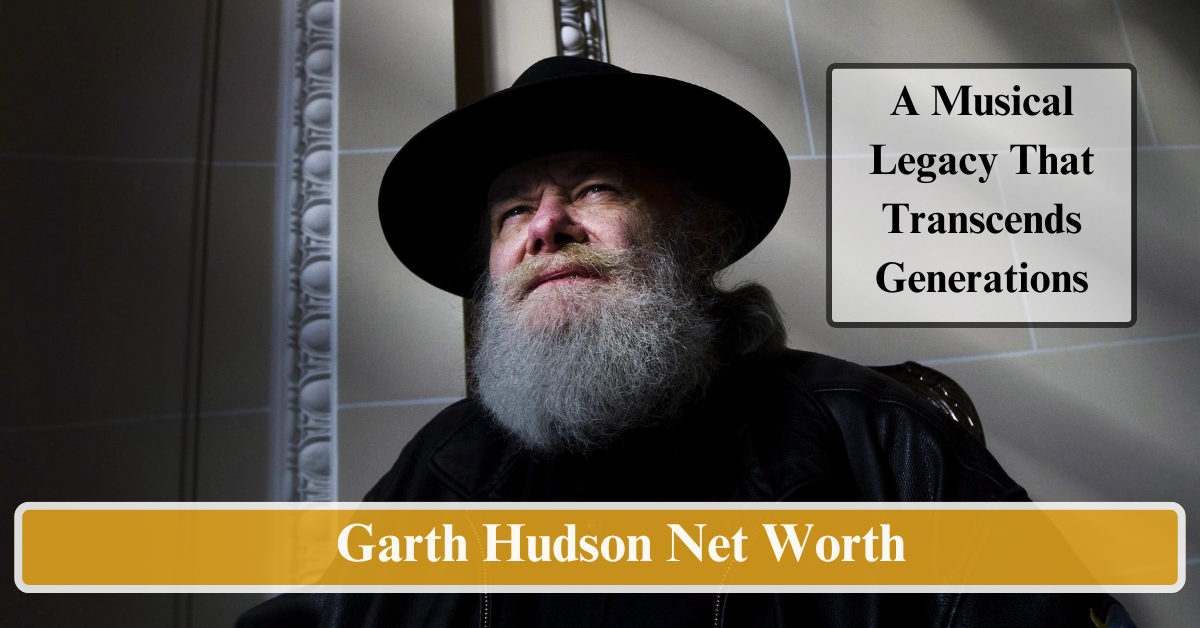Garth Hudson, the renowned Canadian multi-instrumentalist and founding member of The Band, passed away on January 21, 2025, at the age of 87. With a net worth of $250,000 at the time of his death, Hudson’s life reflected both extraordinary musical achievements and financial struggles. Despite experiencing bankruptcy and losing personal property in a controversial 2013 landlord sale, Hudson’s contributions to music remain unparalleled. He is survived by his wife, Maud Hudson, and leaves behind a legacy of innovation, dedication, and influence.
Key Takeaways from Garth Hudson’s Life
- Pioneering Innovator: Hudson’s fusion of classical training with jazz and rock sensibilities redefined the role of keyboards in popular music.
- Financial Struggles: Despite his artistic triumphs, Hudson faced significant financial challenges, highlighting the precarious nature of the music industry.
- Collaborative Spirit: Hudson’s mentorship and collaborations enriched the musical vocabulary of his peers and successors.
- Enduring Legacy: His contributions to The Band and the Americana genre remain seminal, cementing his place as one of rock’s most respected instrumentalists.
Early Life and Musical Foundations
Born on August 2, 1937, in Windsor, Ontario, Garth Hudson displayed prodigious musical talent from an early age. Raised in a family that nurtured his abilities, he began piano lessons at age five and later expanded his expertise to organ, saxophone, and accordion. His formal education at the University of Western Ontario deepened his knowledge of classical music, music theory, and harmony, blending a solid academic foundation with his passion for jazz, R&B, and early rock and roll.
This combination of formal training and eclectic interests became the hallmark of Hudson’s style, which would later help revolutionize rock music. His parents’ influence and encouragement were instrumental in shaping his path, laying the groundwork for a career that spanned six decades.
The Hawks and Mentorship Role
In 1961, Hudson joined Ronnie Hawkins’ band, The Hawks, alongside future Band members Robbie Robertson, Rick Danko, Richard Manuel, and Levon Helm. Officially listed as the group’s “music instructor” to appease his parents, Hudson also took on a mentorship role, guiding his bandmates in music theory and arrangement.
This period was pivotal in honing Hudson’s technical skills and collaborative spirit. His mastery of the organ and innovative arrangements elevated The Hawks and set the stage for their transformation into one of the most iconic bands in rock history.
The Band: Defining an Era
When The Hawks parted ways with Ronnie Hawkins, they found a new direction as Bob Dylan’s backing band during his controversial transition to electric rock. In 1968, the group renamed themselves The Band and released their debut album, Music from Big Pink, which became a cornerstone of the burgeoning Americana genre.
Hudson’s contributions to The Band’s sound were revolutionary. His intricate organ work on tracks like “Chest Fever” and “We Can Talk” showcased his ability to craft rich, atmospheric textures. Albums like The Band (1969) cemented their place in music history, with Hudson’s signature sound driving classics such as “The Night They Drove Old Dixie Down” and “Up on Cripple Creek.”
Musical Versatility and Legacy
Hudson’s role in The Band extended beyond his remarkable organ skills. A master of multiple instruments, he played saxophone, accordion, and clavinet, bringing orchestral richness to their recordings. His classical training infused a sense of complexity and sophistication into rock music, setting new standards for instrumentalists.
Following The Last Waltz, The Band’s farewell concert in 1976, Hudson pursued solo projects and continued to collaborate with a wide range of artists, including Bob Dylan, Van Morrison, and Neko Case. His solo album, The Sea to the North (2001), showcased his diverse musical palette, blending elements of jazz, classical, and folk.
Financial Struggles and Personal Challenges
Despite his artistic success, Hudson faced numerous financial difficulties throughout his life. He filed for bankruptcy several times, and a particularly painful episode occurred in 2013 when a former landlord sold his personal possessions without consent. This sale included irreplaceable memorabilia, reflecting the precariousness of Hudson’s financial situation despite his monumental contributions to music.
Hudson’s Influence and Passing
Hudson’s innovative approach to arrangement and his mastery of the Lowrey organ earned him immense respect among musicians and critics alike. He expanded the possibilities of rock music, blending genres and redefining the role of the keyboard in a band setting.
His passing on January 21, 2025, marks the end of an era. As one of the last surviving original members of The Band, Hudson’s legacy remains firmly embedded in the fabric of modern music. His influence continues to inspire artists across genres, ensuring his impact endures for generations.
Hudson’s life was a testament to the power of creativity and resilience. While his financial troubles underscored the challenges artists often face, his groundbreaking work continues to shine as a beacon of musical excellence.

